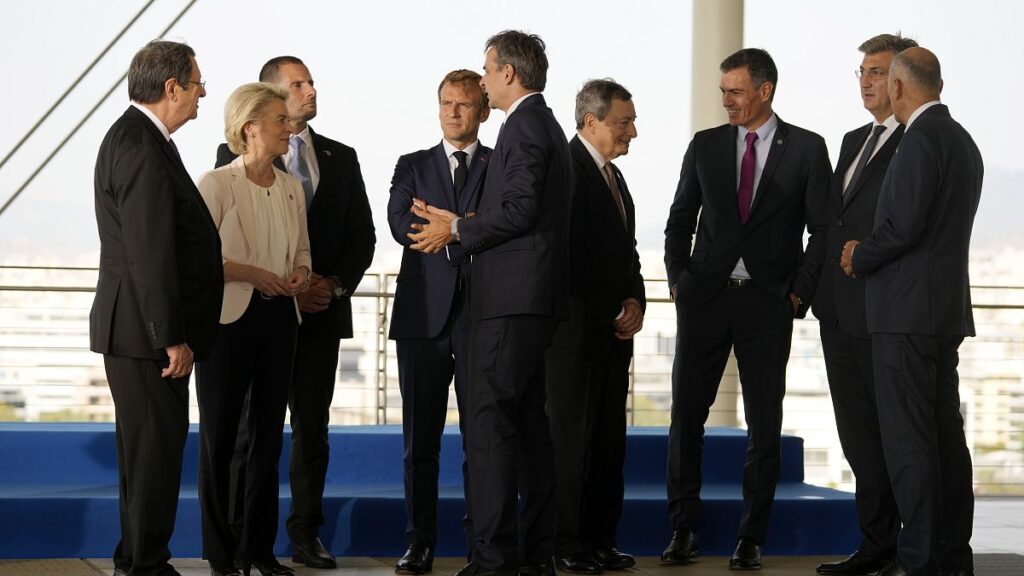The meeting, set in the coastal city of Pafos, comes as the war between Israel and Hamas, which began in Gaza last year, has now spread into Lebanon.
In June, Hezbollah leader Hassan Nasrallah accused Cyprus of siding with Israel by providing support for military operations, threatening the Mediterranean island with retaliation.
Cyprus swiftly dismissed these claims as “baseless” and reaffirmed its position as a neutral actor in the region. President of the Republic, Nikos Christodoulides, said the country is ‘‘part of the solution and not the problem’’.
However, the stakes have risen since Nasrallah’s death in September during an Israeli airstrike in Beirut, and the war’s extension into Lebanon.
As the host of this year’s MED 9, Cyprus aims to unite Mediterranean EU leaders on how to address the escalating conflict. “The EU has not yet shown the response it should have,” said Cypriot government spokesperson Konstantinos Letympiotis, stressing the need for a coordinated EU stance.
Nicosia hopes this summit will pave the way for stronger action ahead of next week’s European Council meeting, where the broader EU bloc is expected to discuss a potential ceasefire.
While Cyprus’s defence minister, Vassilis Palmas, believes the country is not in immediate danger, he acknowledged concerns about the length of the conflict and its potential to expand further. “The situation is critical… Cyprus plays a vital role in humanitarian efforts and in working towards peace, but the tension is palpable.”
The summit will take place in the city of Pafos, and President of the EU Commission, Ursula von der Leyen and the King of Jordan, Abdullah, are also expected to attend.
Fears of a new wave of migration
A major concern for Cyprus is the prospect of another wave of migration from Lebanon and Syria. The island has already been strained by a large influx of refugees, particularly Syrians arriving via Lebanon. As of April, over 25,000 asylum seekers were awaiting processing, straining the country’s resources.
Despite EU funding for a new migrant processing centre, President Nikos Christodoulides warned that Cyprus “has reached its limit” and cannot accommodate more arrivals.
The EU has previously pledged €1 billion in aid to Lebanon to ease the migration crisis, but as the conflict widens, that support may not be enough to stem the flow of refugees.
A Stabilising Force?
Cyprus hopes that hosting the MED 9 summit will reinforce its position as a stabilising force in the volatile Mediterranean region. Fifty years after the Turkish invasion, 37% of the island remains occupied, and Cypriot officials are keen to highlight their experience in managing complex crises. The Cypriot government has already played a significant role in humanitarian efforts, evacuating 2,000 European citizens from the Middle East through the ESTIA project.
EU Med, also known as MED 9, brings together nine EU Mediterranean nations—Croatia, Cyprus, France, Greece, Italy, Malta, Portugal, Slovenia, and Spain—to coordinate on shared regional issues. Established informally in 2013, the group’s influence within the EU has grown, especially on matters such as migration, security, and economic development.
Read the full article here

